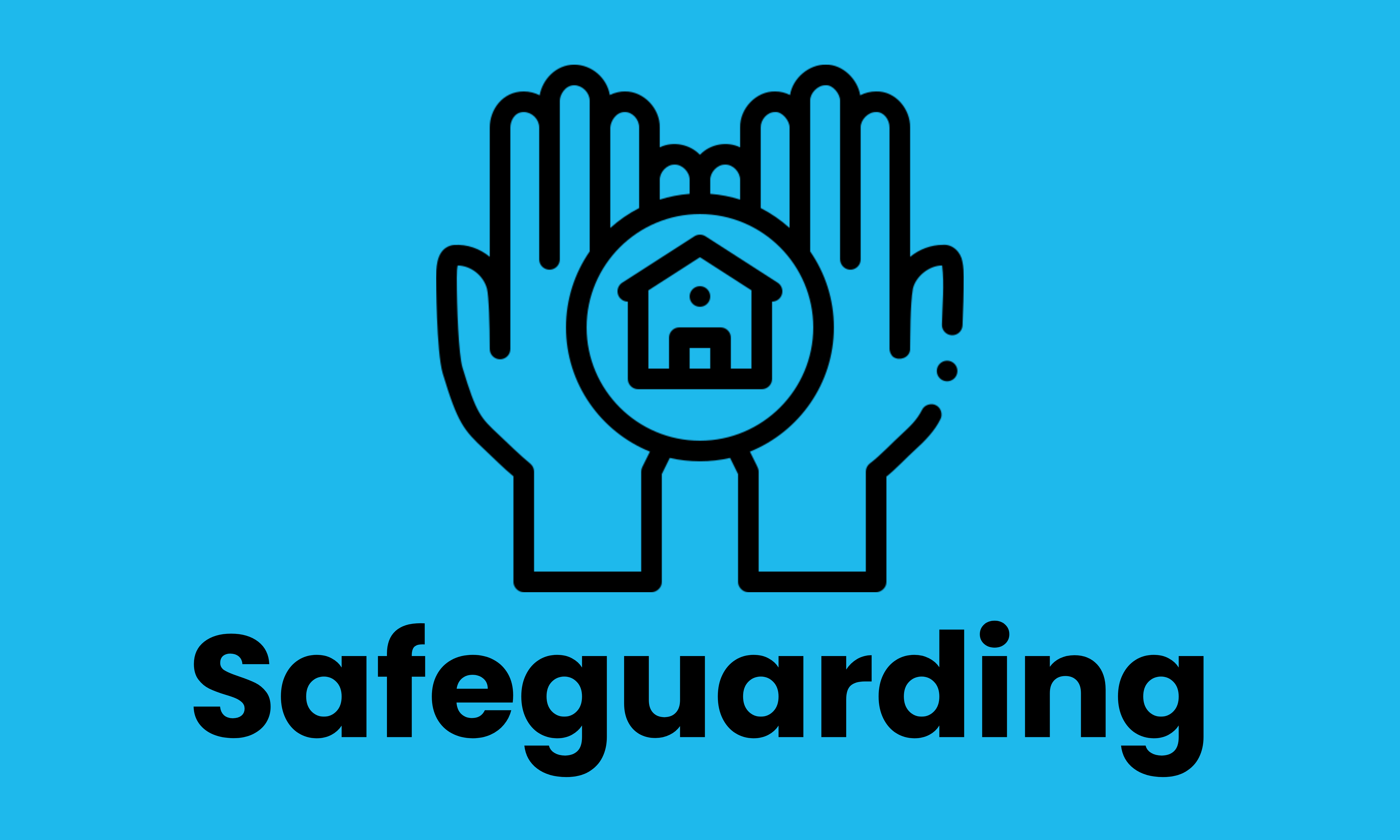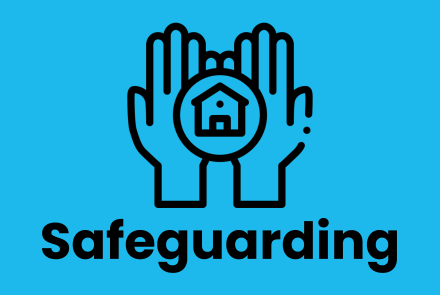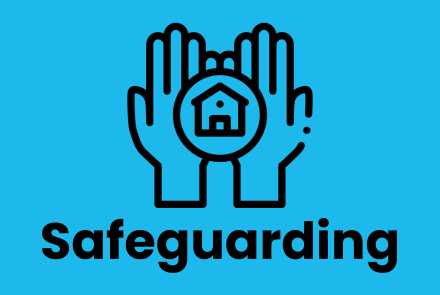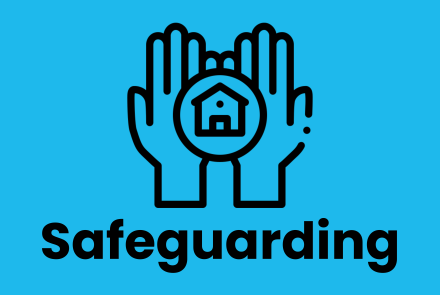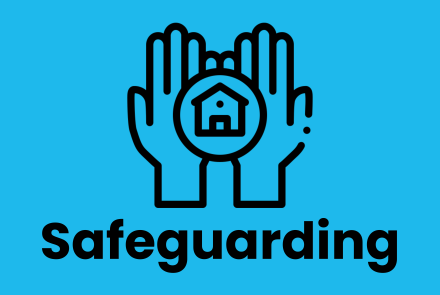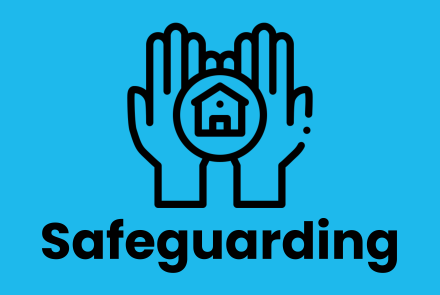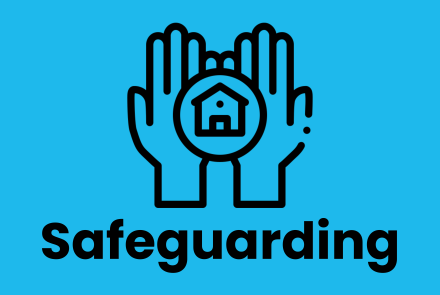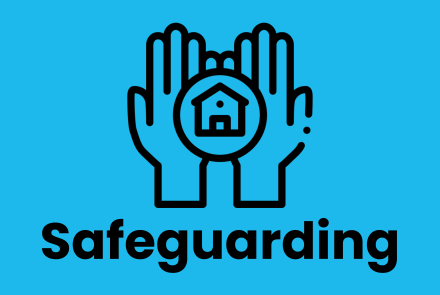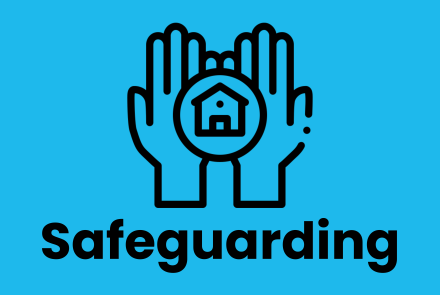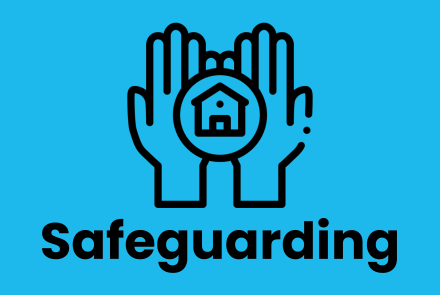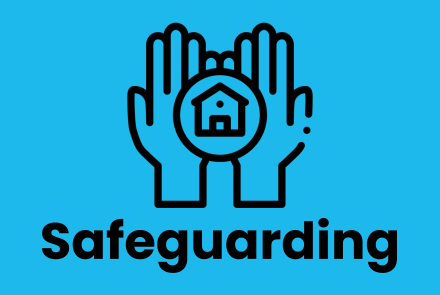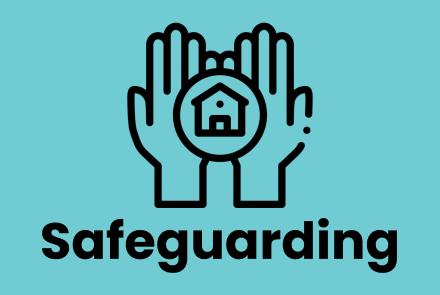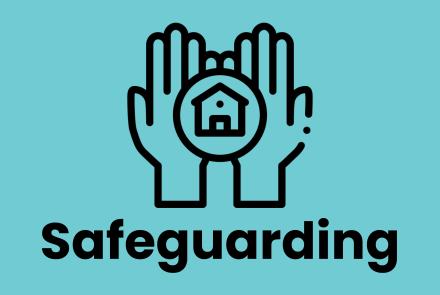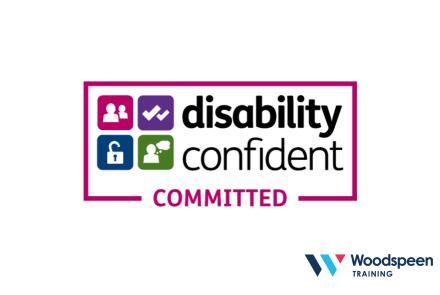Safeguarding Bulletin - June 2024
June's safeguarding bulletin gives you all the up to date information to help you keep your learners safe in the workplace.
Barriers for professionals to reporting abuse and neglect
The NSPCC has recently published a briefing sharing experiences of adults working or volunteering with young people where they faced barriers to reporting abuse and neglect. Whilst focussed on professionals working with young people, the findings will be pertinent for those working with adults.
The briefing identified gaps in knowledge and confidence for some professionals including:
- Feeling like they have insufficient evidence or details
- Believing they needed to wait for permission to report concerns
- Facing unfamiliar safeguarding scenarios
There were also fears around sharing concerns:
- Worries about disrupting or breaking up families
- Fears for personal safety and the safety of others
- Potential job insecurity
And some professionals described issues with organisational responses:
- Lack of safeguarding processes
- Dismissive responses
- Concealing abuse
If you feel you experience some of these barriers and feel you lack knowledge of confidence or would like some general advice and guidance or around a particular situation then please do contact one of the Lead or deputy DSL’s, contacts at the bottom of this briefing.
Full briefing available here Barriers for professionals to reporting abuse and neglect: Helplines insight briefing | NSPCC Learning
Trauma Informed Practice
It’s estimated that one in three children are exposed to at least one potentially traumatic event by the age of 18. Unfortunately, we know that trauma can have a significant impact on mental health outcomes, social development, academic attainment, cognitive development and behaviour, so it’s essential that those working in education are aware of how to help minimise the impact of trauma.
What is Trauma Informed Practice?
In defining trauma informed practice, we must also consider the meaning of adversity, trauma and adverse childhood experience (ACE).
Adversity
Adversity tends to be something that an individual experience over a long period of time, and it’s often not a single event. Examples of adversity include neglect, community violence and bullying.
Many people living with adversity, or those who can utilise the warmth and support of a caregiver or community network, can recover from its impact. However, where they are left unsupported and isolated from effective care, the impact of adversity can be lifelong.
Trauma
Trauma occurs when an individual experiences an overwhelming event that is often beyond their ability to cope with and process. It is a significant disruption in somebody’s life that impacts both their body and mind.
Trauma can be used to describe the event itself, the reaction to it or the lack of a trusting and nurturing support network to help the individual cope with the trauma.
It can be a single event, such as being injured in a car accident, or prolonged, long-term exposure, such as living with physically and emotionally abusive caregivers.
Adverse childhood experience (ACE)
Almost 50% of adults in England and Wales experienced one adverse childhood experience (ACE), with one in ten suffering four or more (Public Health Network Cymru). Stopping ACEs means levels of violence would be cut in half, dependencies on drugs and alcohol would decrease, and overall wellbeing would improve. Fewer ACEs in childhood would also mean fewer adults developing diseases such as cancer, diabetes, and heart disease.
School and college staff, under the statutory Keeping Children Safe in Education guidance, should be aware of the possible impacts of ACEs on children and young people, now and in the future. Being ACE aware means that you strive to ensure that all children have the best possible childhood experiences and life outcomes.
Trauma informed practice
Trauma-informed practice is a universal framework, widely used within the health and education sectors. Its aim is to meet the needs of those individuals who have experienced trauma through strategy, policy, continuous learning and intervention.
Unlike trauma specific services which treat trauma through therapies, trauma-informed organisations recognise that people who have had traumatic experiences can find it challenging to feel safe and develop trusting relationships.
Staff have a strong understanding of how trauma can affect many aspects of an individual’s life and therefore aim to promote trust and prevent re-traumatisation by providing safe, stable environments in which children can flourish.
For more information on Trauma and practice use this link.
Pride Month
June 2024 Pride Month is a month-long celebration that recognizes the LGBTQ+ community and their contributions to society. It is a time to acknowledge the challenges faced by this community and to stand in solidarity with their fight for equality, acceptance, and human rights. Pride Month is a joyful and colourful display of love, unity, and resilience, with events and activities that promote inclusivity, educate the public, and celebrate the diversity of sexual orientations and gender identities.
Although it runs through June 30, Pride Month typically wraps up with a series of events scheduled on or around June 28, the anniversary of the Stonewall Uprising.
They are plenty of ways to participate and show your support during Pride Month including lending your voice, volunteering your time, joining in events or simply increasing your awareness through reading LGBTQ books, films or engaging online via Instagram or other social media outlets.
Prevent
Prevent Duty Resources
Designed with Ofsted and KCSIE and the Prevent duty guidance in mind, this LGfL pages provide a range of safeguarding/Prevent resources.
The Prevent Duty | LGFL
Also, take the quiz and test your and your learners knowledge around Prevent, radicalisation and British Values.
Current threat level
The current UK national terrorist threat level is ‘substantial’, which is defined as ‘an attack is likely’. This level has been unchanged since February 2022 and is set by the Joint Terrorism Analysis Centre and the Security Service (MI5).
The threat to Northern Ireland from Northern Ireland-related terrorism is ‘severe’, which is defined as ‘an attack is highly likely’.
Click here for For more information
Newly-proscribed group: Terrorgram Collective
The UK has become the first country in the world to proscribe the Terrorgram collective.
The Terrorgram collective is an online network of neo-fascist terrorists who produce and disseminate violent propaganda to encourage those who consume its content to engage in terrorist activity. The group is the sixth extreme right-wing group to be proscribed (the first online group), standing alongside 75 groups proscribed for extreme Islamist or other ideologies, and 14 Northern Ireland-related groups.
In relation to proscribed groups, it is a criminal offence for a person in the UK to:
- Belong to a proscribed organisation
- Invite support for a proscribed organisation
- Recklessly express support for a proscribed organisation (This does not need to incite violence or praise the organisation’s terrorist acts)
- Arrange a meeting in support of a proscribed organisation
- Wear clothing or carry articles in public which arouse reasonable suspicion that an individual is a member or supporter of a proscribed organisation
- Publish an image of such an item or article - such as a flag or logo - in the same circumstances
- Encourage an act of terrorism – this includes glorifying, including by praising or celebrating, action in committing or preparing acts of terrorism where others may be encouraged to emulate that action. This offence can be committed recklessly
- Disseminate terrorist publications, including those which indirectly encourage the commission or preparation of acts of terrorism
For more information available here
Castleford man sentenced for racist Facebook posts
In May, A 61-year-old man from Castleford in West Yorkshire was given a 15 month custodial sentence in at Leeds Crown Court for posting antisemitic racist comments on Facebook.
Neil Lloyd pleaded guilty to publishing written material, namely Facebook posts, which were threatening, abusive or insulting, and in so doing intended to stir up racial hatred.
In October 2023, West Yorkshire Police acted on information that that he was posting deeply offensive, and harmful, antisemitic content and threats on Facebook. The account was identifiable by his name and profile picture. Lloyd was promptly arrested from his home address by local police and, within the property, items associated with his antisemitic views were recognisable.
Lloyd was interviewed by police and admitted that the offending Facebook profile and posts were his. He also admitted that the items at his home address were his and had been collected over the years.
The Head of Counter Terrorism Policing North East commented:
“We routinely work together with local policing in order to swiftly apprehend and prosecute those demonstrating racist and disgusting views. This unit contains specialist officers who assess online material to determine its nature and whether it breaches any legislation, requires further investigation, or highlights any further concerns. If any extremist content is identified, then the unit takes steps to get it removed by the host website or platform.”
More information available here
Man given life sentence for Hartlepool terrorist attack
In May, a terrorist who murdered a 70 year old man and attempted to murder a second person was sentenced to life imprisonment with a minimum term of 44 years and 152 days.
Ahmed Ali Alid of Hartlepool was sentenced at Teesside Crown Court after being found guilty of the murder of Terence Carney, and the attempted murder of a 32 year old man in October 2023. He was also found guilty of two offences of assaulting an emergency worker after attacking two police officers while in custody.
At the sentencing hearing, Mrs Justice Cheema-Grubb declared that the attacks were an act of terrorism.
The Head of Counter Terrorism Policing North East commented:
“In this case it was appropriate that the decision to declare this horrific incident as an act of terrorism was made once all the evidence had been heard by the court. The defendant had expressed, during the time of his arrest and whilst in custody, that his actions were inspired by the Israel-Hamas conflict. He appeared to have developed a fixation with the events there. International conflicts can create a mix of outrage, grief and grievance which has the potential to galvanise those with an extremist or potentially extremist mind-set to take action. Sadly, as we have seen in this case, it can have devastating consequences.”
For more information visit this link.
Wellbeing and Resilience
Wellbeing and resilience are vital to developing efficient problem-solving skills, building and maintaining interpersonal relationships and realistic goal setting, all of which greatly enhance an individual’s ability to perform and contribute meaningfully in daily life.
Resilience, which is directly related to wellbeing, is about having the ability to cope with and adapt to new situations. Having a sense of resilience and positive wellbeing enables a person to approach other people and situations with confidence and optimism.
Wellbeing and resilience are important in preventing the onset of mental health problems as well as potentially lessening the severity of existing mental health problems. This is how resilience can help us maintain and cope with difficult circumstances and challenging times.
When to focus on wellbeing and resilience: Resilience is always important, but it can particularly equip people for times of change and stress such as:
- Life transitions and changes, such as starting at a new job
- After the breakdown of a relationship or dealing with a family loss
- If diagnosed with, or worried about a mental health problem (such as anxiety, or depression)
Signs of resilience and wellbeing:
- Confidence to approach new situations and new people
- Realistic optimism and self-belief
- Avoiding constant self-blame
- Ability to set personal goals
- Positive self-image and self-esteem
How can we focus on improving our wellbeing and resilience?
- Setting realistic, achievable, and measurable goals is a great way to promote self-efficacy and building personal resilience. Setting goals should be motivating. One way to increase motivation (and minimise feeling pressure or ‘failure’) is to set sub-goals, smaller and achievable related targets
- Understanding and avoiding negative self-talk as well as actively practicing positive self-talk, an important tool for building self-esteem. Self-talk, which is essentially internal reflections on personal ability and/or image, can greatly influence self-esteem and perceptions about personal ability
- Developing and focusing on interpersonal skills, especially learning how to engage with people from different backgrounds, is a valuable tool for young people that will enhance self-esteem and ability to maintain personal and fulfilling relationships
ReachOut.com resources on wellbeing and resilience
- How to build self-confidence
- How to become self-aware
- How to set goals
- Guide to solving problems
- Building coping skills
- Developing positive self-talk
- Steps to better communication
If you are experiencing a mental health problem, supportive and reliable information can change your life. If you do feel like you are struggling, you can access support and help using the Mind link below or call the Mind free information number provided.
Home - Mind Infoline on 0300 123 3393
Contacts for Lead and Sector Designated Safeguarding Leads across the organisation
Gina Stephens Lead DSL all sectors 07867 260 276
Janine Ridley Deputy Lead DSL all sectors 07771 672 491


